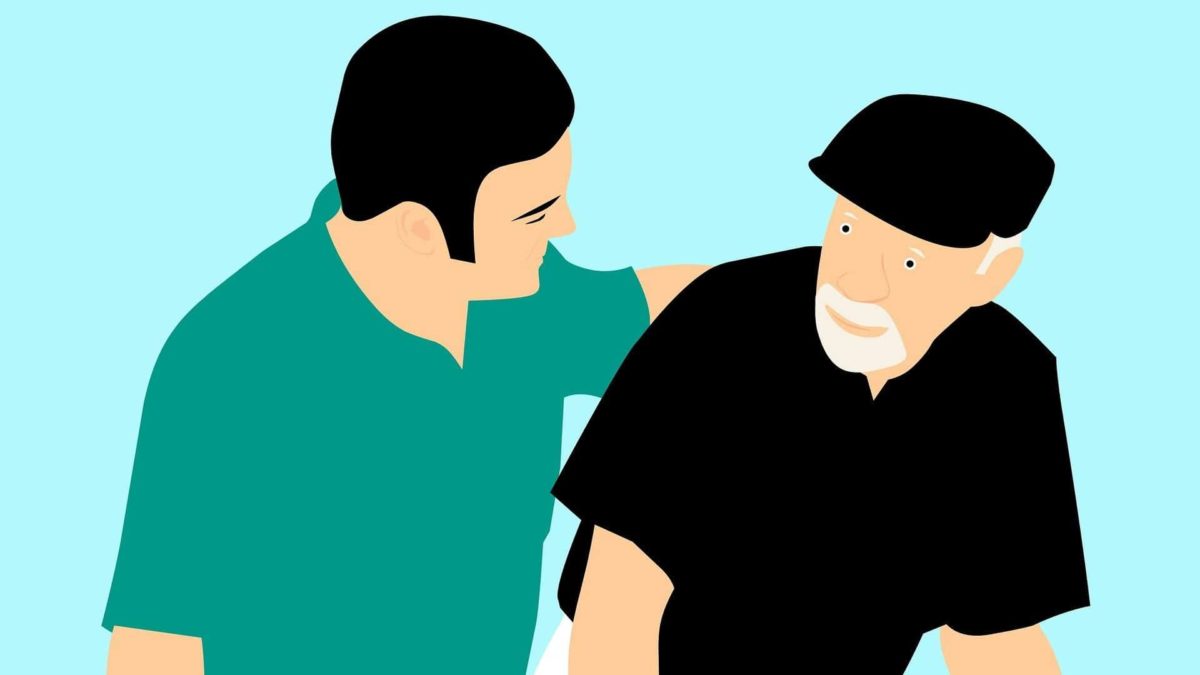Why Does Your Ageing Loved One Always “Act Out”? Here Is the Answer

Jamie’s mother, Sylvie, has become more and more emotional, which is concerning to him because she wasn’t like that before. Today, Sylvie stormed into his room and yelled at him because the temperature in the living room was too cold. She told him that he did it on purpose to make her to move out. Speechless, Jamie wondered what has changed and how to deal with it.
It’s the middle of July. The hot weather swept across Atlanta, making people desperate for some cool air and an icy Coca-Cola. However, Mrs. Oliver wasn’t one of them. She rushed into her daughter, Ashley’s room, staring at her.
“I know your trick,” yelled Mrs.Oliver.
“You make the room so hot so that I am uncomfortable, and I will have to leave. You just want my money.”
“A wicked woman,” he added.
Ashley was both hurt and confused She had no idea what caused her mom to act out like this all of a sudden.
It is not uncommon that people become more hostile and irritable as they age. Seeing them lose their temper makes you suffer, too. Before we move on to talk about how to deal with your angry loved one, we always need to find out the root cause.
What Cause Your Loved One to Act Out?
Dementia
In many cases, Alzheimer’s Disease and other forms of dementia can cause a person’s personality to change. Anxiety and depression over one’s deteriorating cognitive function may also lead to emotional outbursts. Furthermore, because of their desire for independence, it’s not hard to understand seniors with dementia can sometimes be hostile to others.
Medical Issues
Other than Dementia, some other underlying medical issues such as Urine Tract Infections (UTIs) and sleep disorders are also a direct cause of aggressive behaviours in seniors.
Medication Side Effects
Senior can fill up to 14-18 prescription drugs a year, on average. Certain drugs, including asthma inhalers and antidepressants, can cause agitation, impulsivity, and restlessness in seniors. Also, some prescription drugs may cause mood swings and agitation if they interact with each other.
Vision and Hearing Changes
Loss in senses can surely decrease a person’s quality of life. In our previous blog post, “How to Take Care of Your Loved One With Hearing Loss” , we have explained how hearing loss can have an impact on one person’s behaviour and way of communication.
Psychological Concerns
Some mental issues such as depression and anxiety can also alter one’s behaviour and personality. This could be due to the loss of a spouse or changes in living environments. Some seniors may not be open to sharing their feelings, but instead, they choose to express it through behaviour.
4 Things to Do When Your Loved One In In Distress
Evaluate the Underlying Cause
After investigating the potential cause of your loved one’s behaviour, you probably already have a general idea of how to help. Is it because of a cognitive condition that continues to worsen? Or is your loved one’s physical health deteriorating? Make sure to confirmt the reason before finding strategies on how to deal the issue.
Ask, Not React
We have talked about this in our blog post, “How to Communicate with Seniors” . Ask, instead of assume – it’s the first step in knowing your loved one and starting a healthy and helpful conversation. Remember to have a calm and gentle tone, and don’t use passive aggressiveness in your questions.
Be Gentle and Respectful
Being respectful is always the key in interactions. Be soft in your attitude and be careful of your words; make sure to let your loved one feel that he or she is being heard and loved. It works well for the seniors who have separation anxiety.
Allow Yourself to Take a Break
Dealing with a capricious individual can be quite exhausting. It’s important to let yourself have some time to relax and move away from the routine. it is also important to let other family members get involved in the caring process, or if there’s no one around, you can consider hiring a caregiver to help you.
References:
https://www.homecareassistancearlingtontx.com/why-is-my-older-loved-ones-behavior-changing/
https://www.agingcare.com/articles/elderly-temper-tantrums-156852.htm


